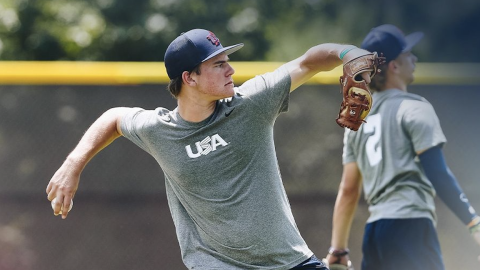Athletics is often a melting pot of cultures, races, sexual orientation, gender identity and socioeconomic status. Athletes, coaches, administrators and medical staff bring their own needs for cultural recognition and personal inclusiveness to sport. For a team to perform at its greatest on game day, there must be a “oneness” within the team framework.
Great teams understand and respect each other, and this is often something that separates champions from simple winners. This concept of respect and mutual understanding is also necessary to ensure optimal athlete health and safety. Focusing on the areas of cultural sensitivity and inclusivity in the athletic setting allows for optimal athletic healthcare and appropriate understanding between the clinician and the athlete.
Culturally sensitive health care has been described as care that reflects:
“the ability to be appropriately responsive to the attitudes, feelings, or circumstances of groups
of people that share a common and distinctive racial, national, religious, linguistic,
or cultural heritage.”.
Cultural sensitivity requires an awareness of cultural diversity, including how culture may influence patients’ values, beliefs, and attitudes, and cultural sensitivity involves acknowledging and respecting individual differences.
Clinicians in an athletic medicine setting require an increased ability to identify the implicit biases and how this could unknowingly affect the care they are providing athletes. Although unintended, these implicit biases can erode the trust that an athlete has in the clinician and can alter the clinician-athlete relationship. The implicit biases of clinicians may impact their ability to engage in culturally sensitive and inclusive appropriate communication with the athletes they care for. When implicit biases are properly recognized and utilized, clinicians develop better therapeutic relationships with their athletes.
How are these implicit biases recognized? Clinicians must be able to reflect on their own personal values and beliefs, and also their professional experiences and related understanding of the perspectives and practices of culturally diverse athletes and families. This personal awareness requires a deliberate approach, and in many cases education and self evaluation to recognize implicit biases.
It is often assumed that sports medicine clinicians—physicians, mental health professionals, and athletic trainers—have the knowledge and skills to communicate in a culturally sensitive manner. However, skills for cultural sensitivity and inclusiveness require development, a development that includes education and practice. Additionally, the levels of education clinicians receive on culturally sensitive communication directly impacts the quality of culturally sensitive communication they provide and ultimately impacts the quality of healthcare provided.
Simply, educational programming is needed in athletic healthcare settings to address the effects that implicit bias can have on the clinician-athlete relationship. When implicit biases exist there can be significant miscommunication regarding diagnoses, condition management, and treatment decisions. This communication may be influenced by the implicit biases and sociocultural characteristics of athletes, their families, and clinicians. Once the clinician has a better sense of his or her implicit biases, they can better understand and communicate with their athletes.
Shared decision making is recognized as a prerequisite for optimal athlete care outcomes. However, some individuals see the doctor as the main decision-maker, which can lead to a compromise of the clinician-athlete relationship. It is important to understand that there can be cultural influences on who is seen as the decision-maker, and the level of autonomy sought or provided the athlete.
Providing equitable healthcare for both male and female athletes must also be guaranteed. The culture of the entire healthcare program will be negatively impacted if the care provided is not equitable. An athletics program at a school, university or institution can be considered gender equitable when the participants in both the men's and women's sports programs would accept as fair and equitable the overall program of the other gender.
No individual should be discriminated against on the basis of gender or sexual orientation. This is the basis of much of the Title IX legislation and programming. Delivering healthcare to athletes that is void of discrimination and bias is implicit if your healthcare team is culturally sensitive care for the athletes. As ongoing education is provided to your healthcare team this education must address gender and sexual-orientation sensitivity training.
Every day is a game day for your healthcare team. They are expected to perform at the highest of levels to provide individual expert care with each athlete. The foundation of the healthcare provided by your team is a commitment to the optimal health and safety of all of the athletes. This foundation of expert, culturally sensitive and inclusive care is built on effective communication. Effective communication that is culturally sensitive and inclusive provides the athlete with a clear understanding of his or her condition, the treatment options, and the risks and benefits associated with treatment or continued participation in sport.
Without question, athletics is a melting pot of cultures, races, sexual orientation, gender identity, and socioeconomic status. Failure to address cultural sensitivity and inclusiveness may negatively impact the clinician-athlete relationship which leads to suboptimal athletic healthcare and increased risk for unnecessary risk and liability. It is imperative that clinicians be aware of their own implicit biases, and that they receive education and training to minimize the effects of implicit bias and improve communication.
Great healthcare teams understand and respect each other, and most importantly they respect the athletes they treat. The diversity of participants is one of the factors that makes sports an excellent example for societal acceptance of cultural sensitivity and inclusiveness. Athletic healthcare clinicians have a responsibility to better understand and respect these differences and ensure cultural sensitivity and inclusive care is guaranteed. When culturally sensitive and inclusive care is present, appreciated and practiced, athlete healthcare and safety is optimized.


